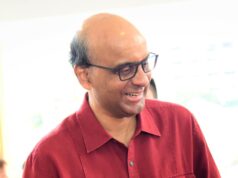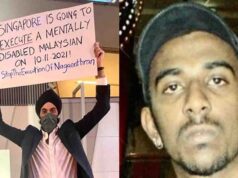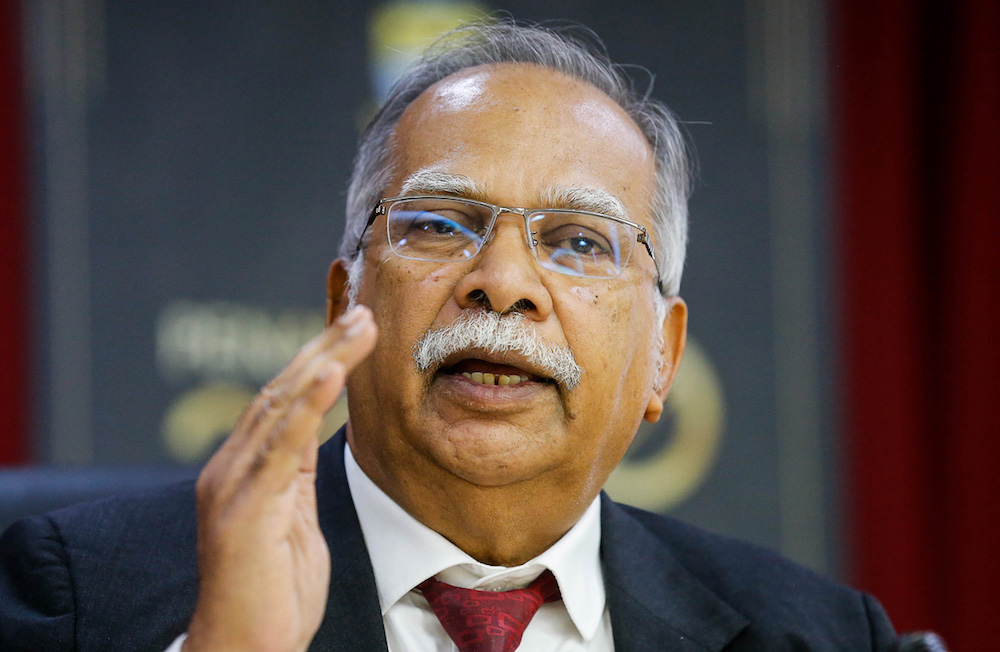SINGAPORE: They crammed into an art cafe in Singapore and pulled no punches, deriding authoritarian officials who ruled with an “iron fist” and complaining that government ministers with million-dollar salaries were out of touch.
One woman, a middle-aged professional, got nods of agreement when she said modern Singapore’s founding father, Lee Kuan Yew, had done great things but that new ways were needed from current leaders still practicing a “do-as-I-say style of parenting”.
Singapore remains regimented but the unusually frank criticism at the recent gathering, part of a government-run national “conversation” about the city state’s future, reflects the reality that this is no longer the era of Lee Kuan Yew.
LKY, as he is widely known, built the tiny Southeast Asian island into one of the world’s wealthiest nations with a strong, pervasive role by the state and no patience for dissent.
Now 89 and in declining health, LKY has receded from the public and political scene, leaving the government of Prime Minister Lee Hsien Loong, his elder son, to deal with economic and social challenges roiling the country of 5.3 million people.
“The time has come for a younger generation to carry Singapore forward in a more difficult and complex situation,” LKY said in 2011 as he resigned from the cabinet after the ruling party suffered its worst election result in history.


In online chatrooms, letters to state-linked newspapers and at the “Our Singapore Conversation” sessions, they are pressing for answers from the ruling People’s Action Party (PAP) which is doing more to listen but struggling with how to change after five decades in power.
Despite the new climate of open criticism, there is still some trepidation about speaking out in front of journalists. At the recent “conversation” session, the organizers asked Reuters not to identify the participants so they could talk freely without being intimidated by the presence of a foreign reporter.
LKY’s long-standing openness to foreign workers clashes with the current mood and detractors decry his paternalistic and stern ways, including defamation lawsuits against critics.
But his legacy as Singapore’s first prime minister for 31 years and then advisor emeritus is not in doubt.
Last August, rumors spread that LKY was gravely ill or had died. When he disproved the chatter by appearing at the National Day parade, the flag-waving crowd erupted into cheers.
In February, he was hospitalized when an irregular heartbeat interrupted the flow of blood to his brain. But he turned up at a forum a month later and took the stage with Paul Volcker, the former chairman of the US Federal Reserve.
Replying to questions about US-China relations, Europe’s woes and Asia’s future, LKY showed his intellect remains intact and powerful. But his speech was slow and sometimes difficult to understand. Many of his answers were short and trailed off.
Volcker prompted nervous laughter from the crowd when he said: “Singapore is going to have to adjust to Lee Kuan Yew at some point not being the guide.”
“Vested in the system”
That adjustment is already happening, senior officials say, with LKY leaving the current leaders to set policies without him pulling the strings. The pace of change is the big question.
Hit by voter discontent in 2011 and again in a by-election in January, the PAP must walk a fine line in pacifying the public’s concerns without abandoning policies that have created a financial powerhouse where stability and an ease of doing business are magnets for investors and multinational companies.
“We have to work in a more open way. We have to accept more of the untidiness and the to-ing and fro-ing, which is part of normal politics,” Prime Minister Lee told the Washington Post.
“It is a major change, of course, which we hope we will be able to navigate safely over a period of time and not suddenly.”
While the PAP’s majority in parliament has shrunk to 80 of 87 elected seats, few expect the opposition to prevail in the next election in 2016. But as the PAP charts the way ahead, there are internal differences over what approach to take, senior officials say.
Some of those divisions were on display in parliament in February over a government document that envisioned the population swelling by as much as 30 percent by 2030, largely due to more foreigners, to maintain economic growth.
“I have very serious reservations about the white paper,” PAP member Tin Pei Ling said during the five-day debate.
Inderjit Singh, also from the PAP, said: “Our past decade of rapid population growth has already created too many problems which need to be solved first before we take the next step.”
During LKY’s time, it was very rare for PAP politicians and civil servants to publicly voice any difference of opinion. But the new scope for dissent extends only so far.
In the end, no PAP member voted against the white paper and it passed by a 77-13 margin. Singh was not present for the vote.
Despite the unusually heated debate, the outcome illustrates why speculation may be overblown about a split in the ruling party or major shifts in policy when LKY is no longer around.
“They still have this pretty much authoritarian kind of mindset,” said Kumaran Pillai, a businessman and former chief editor of The Online Citizen, a popular public affairs website.
“I don’t think the split would happen so soon. The main reason is a lot of PAP cadre members, grassroots members and the elite are vested in the system and they aren’t going to let it fall apart just because Lee Kuan Yew has passed away.”
“MORE OPPOSITION VOICES”
The government has taken steps to restrict immigration, cool the property market, build up infrastructure and broaden social safety nets. But it did itself no favors with the population white paper which sent public anger into overdrive and, for many, reaffirmed the PAP’s reputation for prescriptive policies.
“I just want more opposition voices,” said Brendan Mok, a university student with a dragon tattoo on his arm. “At the same time, I don’t feel the opposition is solid enough for anything that could deliver positive change. But we do want more debate.”
Mok and his friend Ron Ho, who both voted for the opposition in 2011, said the priority was to narrow income inequalities and address concerns about housing, good jobs and living costs.
“A lot of Singaporeans aren’t happy and one of the reasons is because there’s a lot of status anxiety here,” said Ho.
With the PAP under pressure to listen, the year-old “Our Singapore Conversation” is assuming greater resonance.
In a Singaporean twist, the dialogue about the role of the state is organized by the government at venues such as The Connoisseur Concerto, a boutique cafe where about 50 people from diverse backgrounds recently gathered.
Crowded around low tables, they tucked into a buffet dinner and then engaged in a feisty chat about the PAP listening but not really changing and about well-paid officials being out of touch with anxiety over public transport and home prices.
“They don’t take the train, they don’t take taxis, they don’t live in HDBs,” said one woman, referring to the state-built Housing & Development Board apartments where most Singaporeans live. “So how do they know?”
Lee Kuan Yew, who continues to espouse the need for immigrants and scolds Singaporeans for not having enough babies, is also seen as out of touch as citizens challenge the government’s top-down approach and demand their voices be heard.
With characteristic bluntness, he summed up his own legacy in the book “Hard Truths to Keep Singapore Going” published in 2011, just before the election that led to his retirement.
“It’s irrelevant to me what young Singaporeans think of me,” he said. “I’ve lived long enough to know that you may be idealized in life and reviled after you’re dead.”










